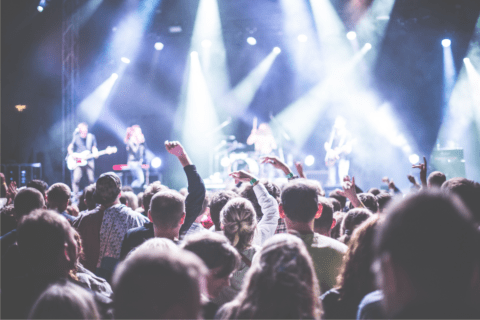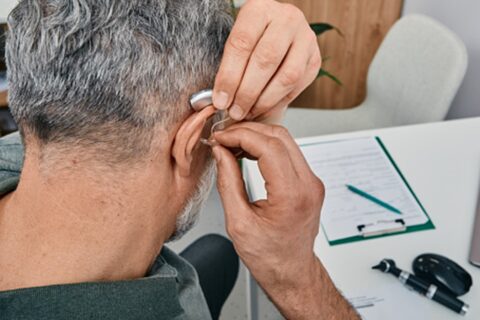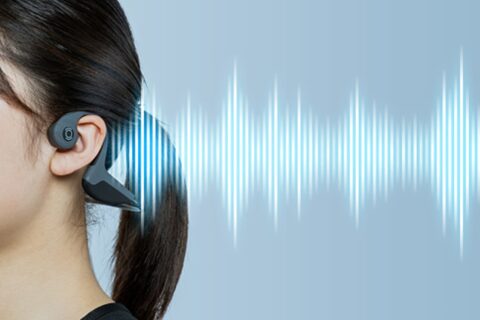Protect Your Hearing at Loud Events

One of the leading causes of hearing loss is loud noise. Exposure to loud noise causes damage to the tiny hair cells in the inner ear that play a critical role in the ability hear. When these hairs are damaged by the vibrations from loud noise, they can’t send information about sounds to the brain. Once these hairs are damaged, they can’t be fixed.
By limiting our exposure to loud noises, we can minimize the damage to the hair cells. Noise is measured in decibels (dB). Long or repeated exposure to sounds at or above 85 dB can damage the hairs. Unfortunately, many of our favorite pastimes are very loud:
- Amusement park rides can reach levels of 85-100 dB
- Rock concert average between 90 and 120 dB
- Sporting events can reach levels of 110 decibels or more
By taking the following steps to protect your hearing at events such as these, you can enjoy the events safely.
- Be aware of your surroundings and the decibel level. It’s also important to be aware of your surroundings and the decibel level at the event. Many loud events will have decibel level information available, and it’s a good idea to check this information before attending. Knowing the expected decibel level can help you make informed decisions about how to protect your hearing.
- Choose seats away from speakers. One of the easiest ways to reduce your exposure to loud noise at events is to choose seats that are away from the speakers. This can significantly reduce the level of sound that reaches your ears, and it can make a big difference in protecting your hearing. If possible, try to select seats that are farther away from the stage or speakers, or even in a higher location, as sound tends to dissipate as it travels through the air.
- Wear earplugs or noise-cancelling headphones. One of the most effective ways to protect your hearing at loud events is to wear earplugs or noise-cancelling headphones. Earplugs are designed to reduce the amount of sound that enters your ear, while noise-cancelling headphones use active noise cancellation technology to reduce the level of background noise. Both options can be worn at loud events to reduce the risk of hearing loss.
- Use earplugs specifically designed for musicians. Musicians are particularly at risk of hearing loss due to their repeated exposure to loud music. To protect their hearing, many musicians use earplugs that are specifically designed for their needs. These earplugs are designed to reduce the level of sound while still allowing the musician to hear their instrument clearly. They are also often designed to fit comfortably in the ear for extended periods of use. If you are a musician, it’s important to consider using earplugs specifically designed for your needs to protect your hearing.
- Limit exposure time to loud noise. Another important prevention strategy is to limit your exposure time to loud noise. This means avoiding prolonged exposure to loud events, such as concerts, and taking breaks in a quiet area when you are at a loud event. It’s also a good idea to avoid attending multiple loud events in a row to give your ears a chance to recover.
- Take breaks from loud noise. Taking regular breaks from loud noise can also help to prevent hearing loss. This means finding a quiet area away from the noise and giving your ears a chance to rest. During these breaks, you should also avoid listening to music or other loud sounds on your phone or other devices.
It’s important to remember that exposure to loud noise can damage the delicate structures in our ears and lead to hearing loss, which can be temporary or permanent. Therefore, it’s essential to take steps to protect your hearing, especially at loud events. Protecting your hearing at loud events requires a combination of different strategies. Wearing earplugs or noise-cancelling headphones, limiting your exposure time to loud noise, taking breaks from loud noise, and using earplugs specifically designed for musicians can all help to reduce your risk of hearing loss.


